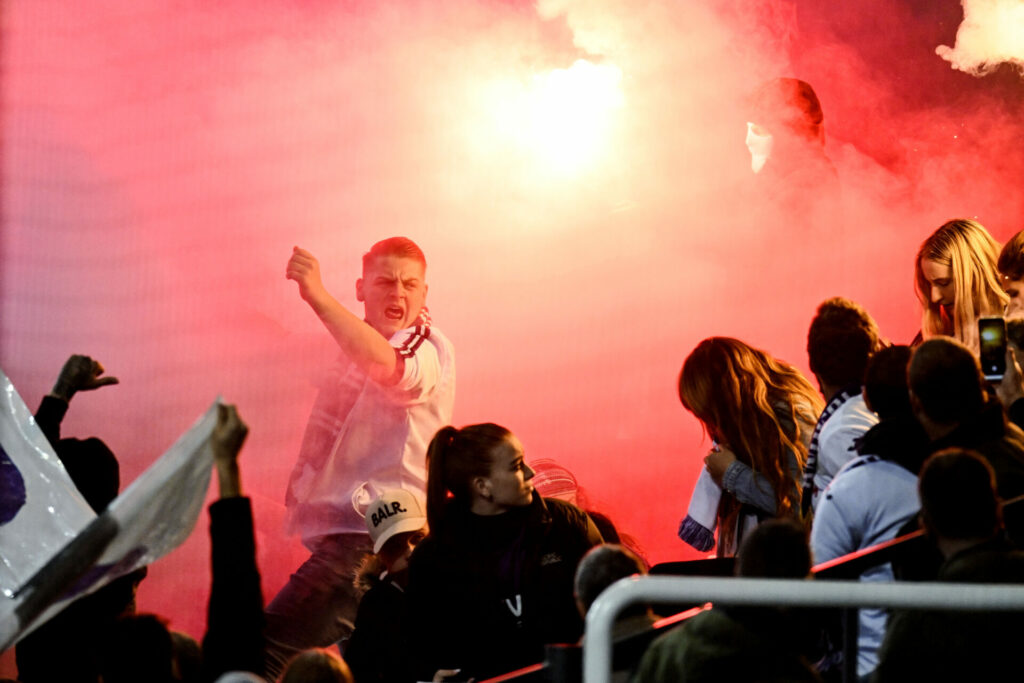The Federal Government has approved the proposal put forward by Interior Affairs Minister Annelies Verlinden to tighten Belgium's Football Act in order to punish hooliganism and violence in and around football stadiums more harshly.
On Friday, the Council of Ministers set the clear standard that violence surrounding football matches will no longer be tolerated by approving Verlinden's action plan, 'Together for Safe Football.'
"Football should be a celebration and violence has no place there," she said in a press release, adding that the social outcry about violence in and around football stadiums is "wholly justified."
Supporters and board members are also turning ever louder against hooligans who ruin the reputation of Belgian football as a whole. "The tightened Football Act should contribute to making supporters feel safe in and around football stadiums."
Three important pillars
With the action plan 'Together for Safe Football', Verlinden joins forces with the Pro League, the Royal Belgian Football Association (RBFA), the FPS Home Affairs, the police and professional clubs to ensure football matches take place in safe and pleasant conditions. The tightening of the Football Act approved on Friday by the Council of Ministers is an important part of that plan, based on three important pillars.
First, the organisers should be held responsible: clubs have an important responsibility for safety in stadiums, which is why all rules must be applied harmoniously by all clubs. The football cell of the FPS Home Affairs will therefore monitor clubs' correct compliance with the regulations more strictly.
To further hold clubs accountable, the tightened Football Act clarifies and increases their part in the security chain. "Clubs will be explicitly challenged if deficiencies in their camera systems are found, they fail to comply with regulations related to ticket sales or they take insufficient precautions to keep pyrotechnic material and objects aimed at evading its identification, such as balaclavas, out of their stadiums."
As a second step, tougher sanctions and better protection for security personnel will be enforced, because, despite the efforts of many to make the football experience safer, the approach is proving inadequate.
Related News
- How Morocco fans in Brussels have (really) celebrated their World Cup campaign
- Beerschot football club condemns racist chants against Molenbeek
- Hooligans vandalise Brussels restaurant Le Falstaff at Bourse
Therefore, the revamped Football Act toughens penalties for certain offences such as physical violence, racism or xenophobia and the use of pyrotechnic material. The stadium ban per offence can reach a maximum of 10 years, instead of five years currently.
Offences committed against stewards, security officers, security guards, members of the emergency services or members of the police force will also be punished more severely under the revamped law.
Lastly, security personnel will get additional authority in the context of access control to ensure that people with current stadium bans are effectively banned from stadiums.
Today, clubs are already required to issue tickets and season tickets by name, but with the new stricter measures, not only police officers but also stewards and private security officers will be able to check the identity of supporters, and compare it with the name on the ticket or season ticket – especially at high-risk matches.

